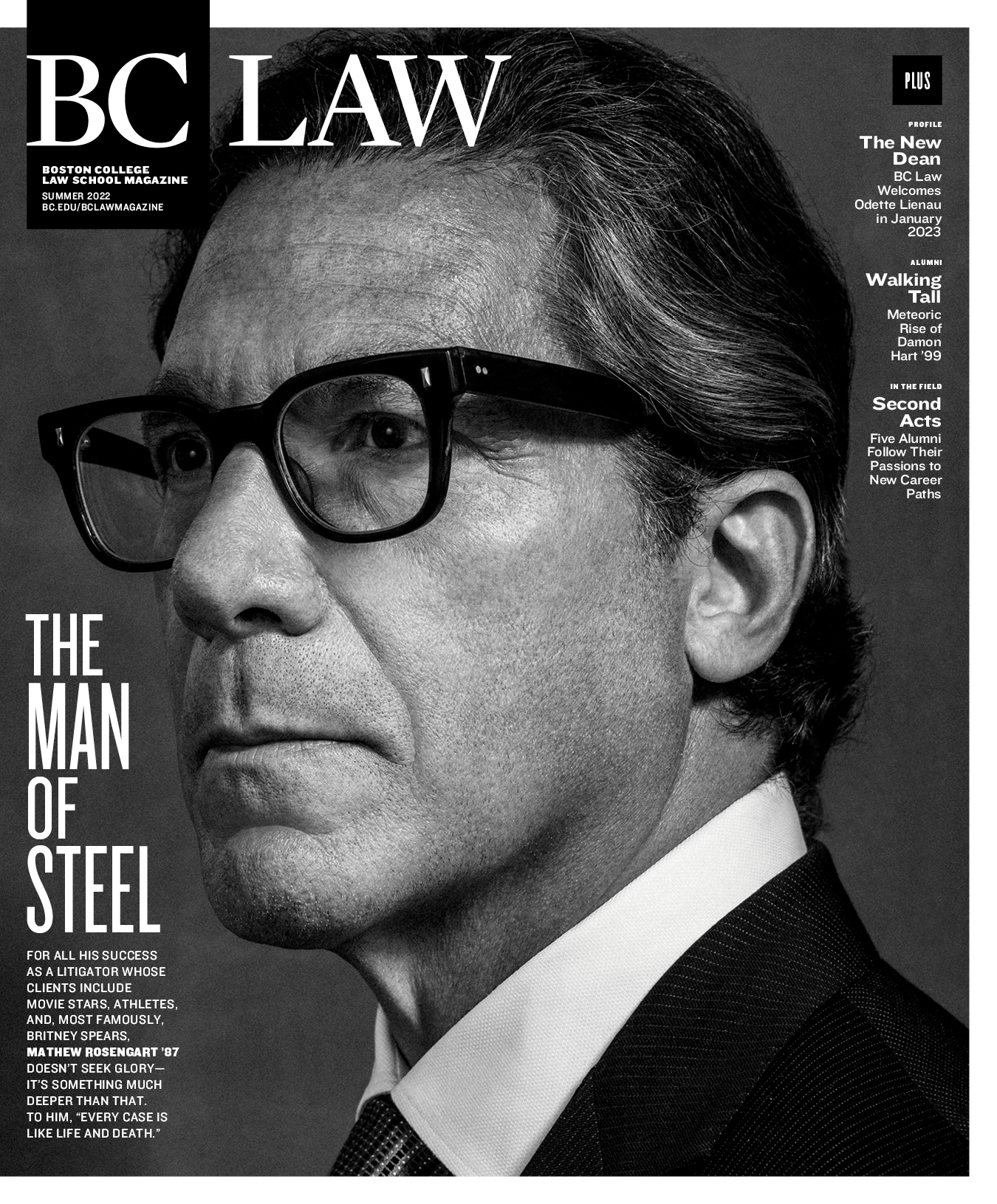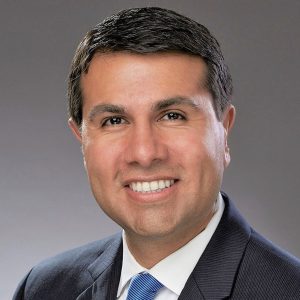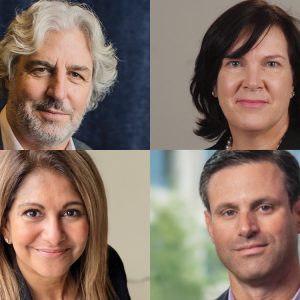Pocket Résumé
Chris Daly ’03: Director of Mediator Education and Quality Assurance, New York Peace Institute. Fun in the Sun: She’s an avid open-water swimmer and downhill skier and enjoys traveling the world—most recently to Cuba—with her husband, Rick Allendorf ’02, and their two kids. Super Fan: She’s an enthusiastic Eagles fan and has been a season football ticket holder since 1993.
“Conflict is all around us. It’s endemic. But how often do we have the time to unpack it?” asks Chris Daly (Allendorf) ’03, director of mediator education and quality assurance at the New York Peace Institute. As a state-certified trainer, mediator, conflict coach, and circle keeper, Daly spends her days helping people resolve conflicts. “We are living during a unique time when people stop speaking to others with different opinions and perspectives,” she says. “What I like best is bringing people together to listen to each other, collaborate, and perhaps create more understanding.”
Daly spent a decade as an assistant district attorney prosecuting felony domestic violence cases for Bronx County, New York, before a career pivot to mediation and restorative justice in 2014. “When you work as a prosecutor, you realize very soon that the system is set up so that the survivor’s voice is not always amplified. Trial systems and rules of evidence, by their very nature are formal, and can be limiting.”
The New York Peace Institute works alongside the state court system—and other clients—to create processes for mediation, arbitration, and restorative justice. “In New York state, Chief Judge [Janet] DiFiore announced that presumptive mediation should be the default for a broad range of state civil cases. If people can resolve their own problems, the solutions are generally more durable and people are happier with the process,” says Daly.
Daly trains New York Peace Institute’s certified mediators as well as a wide variety of others, including judges, attorneys, police officers, artists, community activists, and anyone interested in becoming a conflict resolver. “It’s not a quick process,” says Daly, who leads both in-person and online trainings. “As the mediator, you have to be aware of how you are influencing the conversation through your intersecting identities and positionality when you craft your interventions in service of the conversation for the clients. To do this work, you have to be trauma-informed and hyper-present in the moment.”

Daly is clearly fulfilled by her career. “When people are confronted in mediation with someone who might have caused them a great deal of injury—physical, emotional, or financial—the impacts of the conflict are often revealed in new ways and there is frequently new information,” explains Daly. “This causes shifts in people’s positions, which allows for new pathways forward.”
Social justice has long been Daly’s primary driver. She was drawn to Boston College as an undergraduate and then to the Law School because of the University’s emphasis on mind and soul. “I love BC’s Jesuit heritage. The core curriculum, encouraging men and women to be in service for others, resonates with me,” says Daly. Between college and law school, she was awarded a Rotary Ambassadorial Scholarship to travel to New Zealand, Australia, and Fiji, where she promoted cross-cultural understanding and while there learned about mediation and restorative practices.
“For people to hear from others they’re at odds with, to say their piece, can change hearts and minds,” she says. “Mediation brings people together who don’t see eye to eye and the result can be increased understanding and some clarity to build a better future.”





